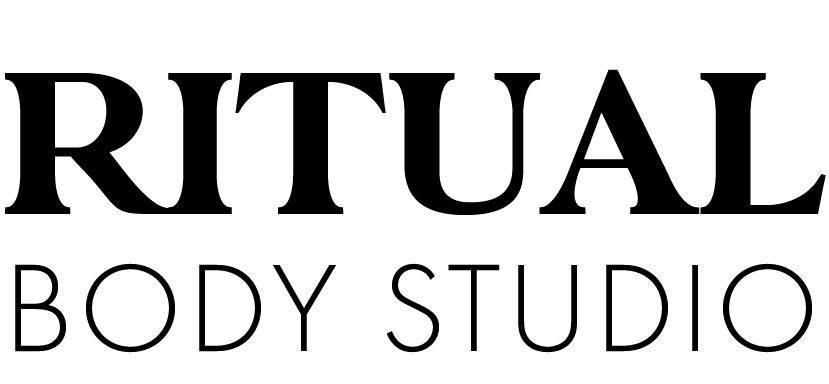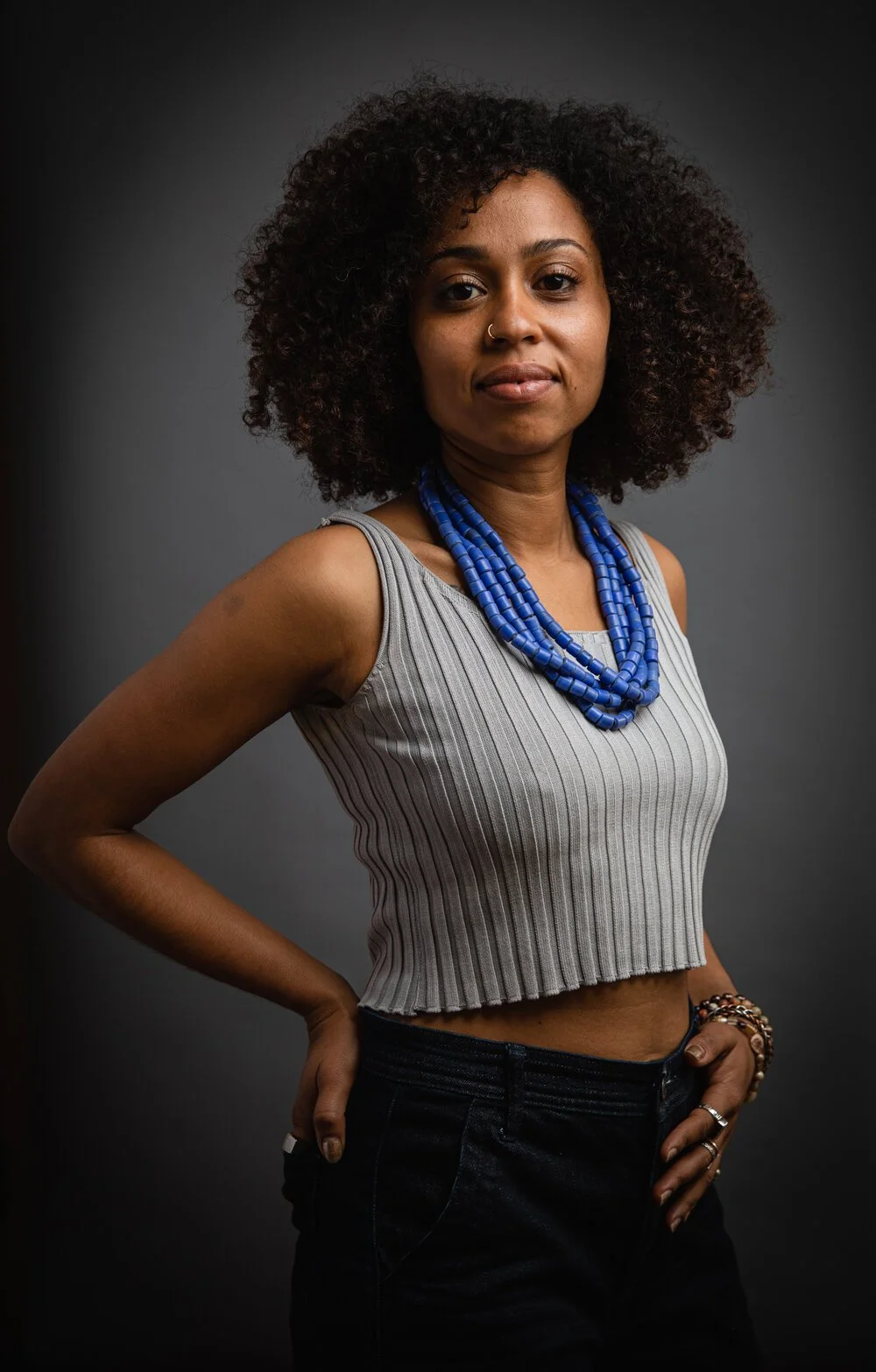Stephanie Yawa De Wolfe, Post-Partum Care Provider
Steph and I met a little over five years ago when she began coming to me for skincare services.
I sensed tout de suite we were soulfully connected-each on important missions in this lifetime. Our sessions always arrived at an intellectual zenith where we shared stories of hope and trauma, and our musings of politics and the future. Steph is passionate, brilliant, and her brand of humor makes me chuckle. I know she is doing great things in this world and I am so proud to call her my friend.
Tell us a little bit about yourself, what you do, and something you secretly enjoy?
Well, for one, I'm a huge nerd which is important to know because it drives all of my work and interests. I am a post-partum care provider, food literacy and community health educator, social impact consultant, and cook. I grew up in West Africa and in particular spent a lot of time in Togo and Senegal, where indigenous perspectives on health and wellness are woven into the social fabric. Indigenous is thrown around a lot, but it means "of a place." So, I'm really shaped by place-based perspectives on how to be well: how to eat, what plants to use, letting the seasons guide our habits, honoring cultural legacies that existed before me, believing that humans are just one piece of nature and can afford to learn from it. When I moved to States for college I quickly realized that structural racism and the capitalist food industry have not only separated Americans culturally from our land, food, and cooking as ways of life, but that poor communities and people of color are physically more impacted by the power imbalances and social strata in our food and health system. I began to focus on racial health disparities, the physical impacts of the social construction of race and black and African-led models for health. So, I'm devoted to the question of how we can use our power to heal: socially and individually through cultivating interdependence and reclaiming our health sovereignty. I work with people who have been pregnant to replenish and heal after birth, using whole foods and healing diets, and midwifery informed holistic practices that have existed across the globe for centuries. I hold space, cook nourishing foods, and support women in their health goals. In particular, I think plants are incredible teachers: they remind us that everything, even one's body, is a system, contrary to our reductionist biomedical culture. I secretly enjoy swinging as high as possible and truly lament that adult swings are not a thing.
What is your sun, moon, and rising sign? In what ways do you identify with each?
I love this question! My sun is in Virgo, which makes sense because I'm detail oriented, have high standards for what is possible, and I like to think critically and analytically about how structures frame our health and self-efficacy. I treat everything like a project or homework assignment begging for a gold sticker, I can't help it! Virgo is the keeper of the temple, and despite the critical lens sometimes getting in the way, I can see how that connects to why I'm so motivated around practices and rituals of healing and creating comprehensive resources and guides to help others learn. My rising sign is Scorpio, which I know the least about, but I think I see it in my strong sense of right or wrong and commitment to social justice. I go deep really fast. My moon is in Cancer, who is ruled by the moon. Home making and care taking are so central to who I am, Cancer moons love to care for others, nurture and nourish others. Of course, that's a lot of water. I feel a lot, and find my restorative moments grounding with the trees and taking baths or getting in water. I like the balance of all of these, I think the water signs counteract the Virgo nicely.
Describe yourself in five words.
Curious. Loving. Reflective. Determined. Liberation-minded.
Top three favorite movies?
That's hard! I am Love. Atlantics. Like Water for Chocolate. Moonlight.
What does Health + Wellness mean to you? How can we make wellness a more inclusive space for all?
I love this question! For me, health and wellness means we have to understand the long historical context of how we define what it means to be well, and how much we have normalized that certain people are supposed to be unwell, like that's natural. It means acknowledging that our feelings, our bodies are wise and have insight for us. It means seeking to understand what ancestral trauma we carry and where it lives and shows up in us, which asks us to be present, and slow down, breathe. That is very hard to do in a work-obsessed culture. I think it also means insisting on rest, and finding ways to play with our senses-- forgetting recipes and finding our intuition. For me, in order to make wellness a more inclusive space, we need to learn about systems and structures of violence in order to understand the many ways that we think is "normal" is actually about white supremacy, power, and domination of indigenous wisdom. I think learning about settler colonialism, the disabilities rights movement, and history of modern medicine, especially gynecology's relationships with black folks in America. Another piece of inclusivity is not simply asking people of color to speak up, but taking high risks as white cis-gendered folks to make yourselves vulnerable and using your voices. Inclusivity isn't just about representation of melanin, it's also about who has to pay social consequences to exist freely. So, instead of asking, "where are the black women I can associate with or tag," ask "how am I willing to sacrifice my comforts, take risks in my relationships (with family, with friends, in business dealings) and possibly lose followers in order to stand up for what is right and just? How do I show up to doing my own self-examination and see where exclusivity lives in me, and what am I doing about it? What power do I have that I can give back to those who have had it taken from them again, and again, and again? If we want to make wellness more inclusive, we need white women to take ownership of that, not just hand it over to us.
And finally, what does Feminism + Sisterhood mean to you + why is it important?
I appreciate the many iterations of Feminism that have developed over time, but I often find myself frustrated with the notion that to be a feminist is to aspire to the social power a man has. I think that toxic masculinity and out-of-balance gender roles are harmful to everyone, men included. I appreciate womanism for how it considers the cultural and communal dimensions of collectivist cultures. In a womanist framework, most generally speaking, the concern is not simply for what it takes for a woman to live and thrive, but what it takes for her community, relationships, environment to live and thrive. Both concepts remind me of the Feminine, which is powerful because it is life-giving. When Audre Lorde talked about The Master's Tools in her book Sister, Outsider, which I strongly recommend, I interpret her to basically say "we need to find ways to live that haven't been the ways of dominant masculine culture." To me, colonialism functions through separation and control. Patriarchy functions through force and domination. Feminism + Sisterhood then, to me, is about connection, nurturance, life-giving qualities that foster freedom and self-determination. It's important that we insist on finding ways to connect and support one another, to affirm and validate that which modern society has pathologized as "crazy." For me Feminism + Sisterhood is about helping women advance, centering women and femme points of view in all things, collective feminine power, and holding each other along the way, through our healing, our growth, and the grief of what it means to be alive in such a violent moment.
Where can we find you on the web?
I'm still working on my website but it should be live soon! It's stephyawa.com.
IG @yawacooks and @stephyawa.


